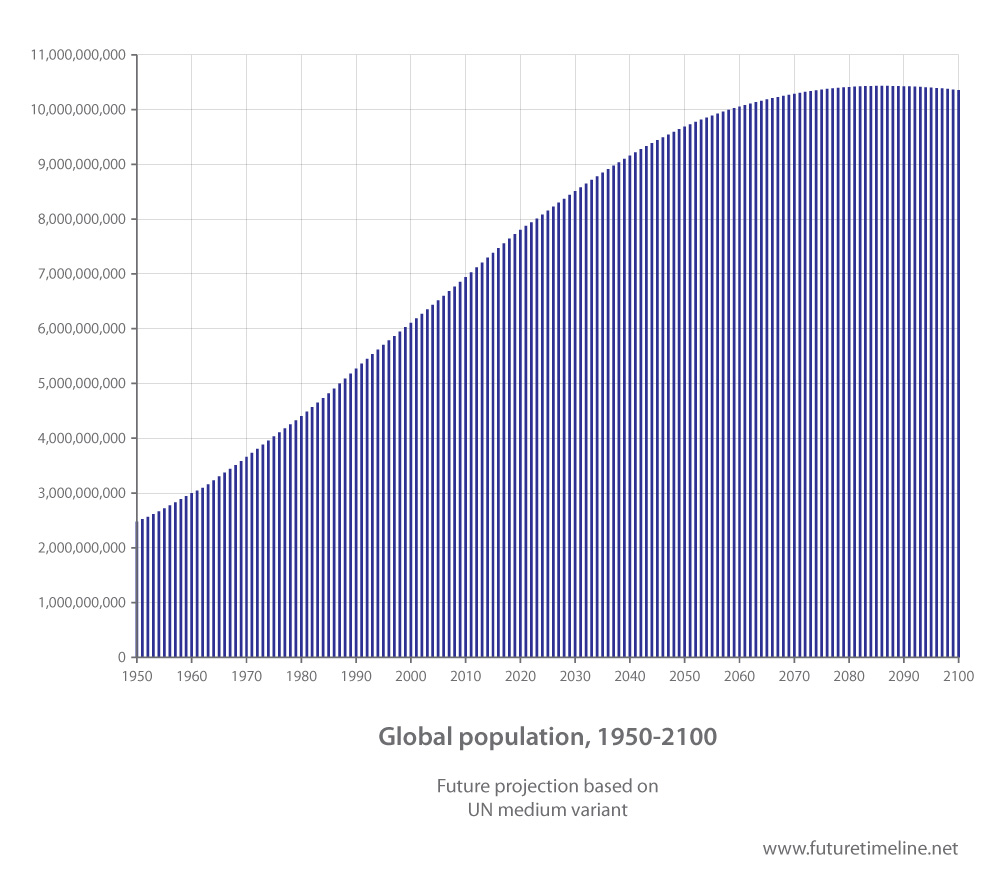
15th November 2022 Global population reaches 8 billion Today, 15th November 2022, is the most likely date for when the global population reached 8 billion, according to a UN estimate. The world is now on track to surpass 9 billion by 2037 and 10 billion by 2058.
In less than half a century, the number of humans on Earth has grown from 4 billion to 8 billion. Or put another way – if you are 48, the global population has doubled within your lifetime. If you are 68, the population has tripled. Major improvements in public health that have lowered the risk of dying and increased life expectancy are the key driver behind this trend. A widespread fall in child mortality has been among the biggest contributors. At the same time, however, the surging number of people is a reminder of our impact on the planet and humanity's collective responsibility to ensure a world that future generations can enjoy. Substantial inequalities also remain in terms of health and living standards. "Unless we bridge the yawning chasm between the global haves and have-nots, we are setting ourselves up for an 8-billion-strong world filled with tensions and mistrust, crisis and conflict," said UN Secretary-General António Guterres, commenting on today's milestone. The UN's latest forecast now predicts 9 billion people by 2037 (under a "medium" scenario), which is sooner than their previous forecast of 2042. It does, however, still indicate a slowdown in the population growth rate. While it took 12 years to go from 7 to 8 billion, the next billion is likely to take 15 years. A rapidly growing human population makes eradicating poverty, tackling hunger and malnutrition, and increasing the coverage of health and education systems more difficult. Conversely, achieving the UN's Sustainable Development Goals (SDGs), especially those related to health, education, and gender equality, will help slow the world's population growth. Relatedly, conflating population growth with a rise in greenhouse gas emissions ignores that nations with the highest consumption and emissions rates are those where population growth is already slow or even negative. Meanwhile, the majority of the world's population growth is concentrated among the poorest countries, which have significantly lower emissions rates but are likely to suffer disproportionately from the effects of climate change. "We must accelerate our efforts to meet the objectives of the Paris Agreement as well as achieve the SDGs," said Li Junhua, UN Under-Secretary-General for Economic and Social Affairs. "We need a rapid decoupling of economic activity from the current over-reliance on fossil-fuel energy, as well as greater efficiency in the use of those resources, and we need to make this a just and inclusive transition that supports those left furthest behind." Africa and Asia drove most of the growth from 7 to 8 billion and are expected to drive the next billion by 2037. India, which added the biggest contribution over the last 12 years (177 million) will soon surpass China (73 million) to become the most populous nation on earth. Looking further ahead, Nigeria will overtake the United States in the coming decades, with its population doubling from 215 to 430 million by 2060. To maintain our way of life, human society now requires the equivalent of 1.79 planet Earths' worth of resources, a figure that increases every year. The UN predicts that the global population will peak at 10.4 billion in 2086. However, while overpopulation is a concern for now, underpopulation will create new challenges in the second half of this century. As births continue to fall below the replacement rate of 2.1 children per woman, countries will experience an ever more imbalanced ratio of employees to retired older persons. Could longevity treatments mitigate this, alongside robots and automation? Either way, societal and economic systems are likely to look very different by 2100.
Comments »
If you enjoyed this article, please consider sharing it:
|







